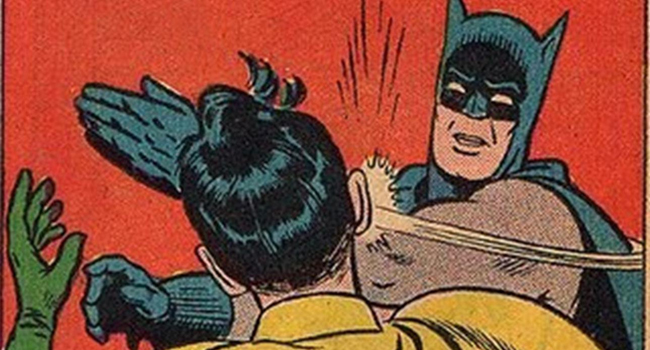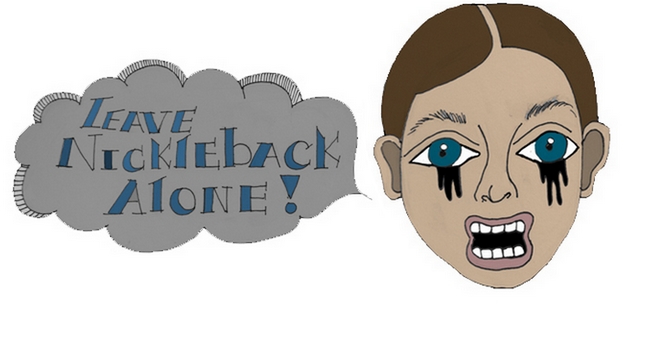You Were So Last Summer.
It is inevitable that we age. We accept this. We accept that we will lose the plot of our high school and college naiveté, replacing it with more mainstream dreams and goals. But while we wait for the impending dusk of our lives, in our own deteriorating brains we believe that musicians and their art will not suffer the same fate as our own dreams. We expect their youths to be eternal, their rage flames unquenchable in the face of cash, wrinkles, marriage and kids. Some defy age’s pull, aging gracefully into a state of blunted importance (Wilco, Superchunk). Some just become boring because we realize they don’t have anything to talk about anymore (Death Cab For Cutie). But those are the outliers, and most fall; a good number fall hard. Whether it is a matter of our own misplaced expectations, or the fact that many of our favorite musicians (Conor Oberst) fall off a steep cliff once they hit 30 is of no consequence. Musical aging happens, and to certain bands it is a death sentence.
 Today Taking Back Sunday release their self-titled fifth record (read our take). Many emo bands don’t make it that far, and those who do are rarely as relevant as TBS have managed to be. But their importance is one of unbridled hype, doomed to failure. You see, this is a new—well, old, Taking Back Sunday. John Nolan and bassist Shaun Cooper have returned to the fold. What’s old is new again. The reconstituted band is at least aware of the seemingly nonchalant lineup change’s importance to a legion of fans waiting on bated breath for it to happen; they played the entirety of Tell All Your Friends at Bamboozle. This has been the moment the LiveJournal junkies have been waiting for, and it is the moment when we all begin to realize how much we’ve grown up—and how Taking Back Sunday at best lost the plot, at worst never had it.
Today Taking Back Sunday release their self-titled fifth record (read our take). Many emo bands don’t make it that far, and those who do are rarely as relevant as TBS have managed to be. But their importance is one of unbridled hype, doomed to failure. You see, this is a new—well, old, Taking Back Sunday. John Nolan and bassist Shaun Cooper have returned to the fold. What’s old is new again. The reconstituted band is at least aware of the seemingly nonchalant lineup change’s importance to a legion of fans waiting on bated breath for it to happen; they played the entirety of Tell All Your Friends at Bamboozle. This has been the moment the LiveJournal junkies have been waiting for, and it is the moment when we all begin to realize how much we’ve grown up—and how Taking Back Sunday at best lost the plot, at worst never had it.
Taking Back Sunday have been on a downward spiral, but it’s hard to say whether that downward spiral is because they’re actually getting worse or the inevitability of age affecting both the band and ourselves. I would wager many people enjoyed Where You Want To Be, even if it was nothing compared to Tell All Your Friends. But because Lazarra wrenched creative control, essentially creating a persona for himself, the band has turned into an odd update on the Foo Fighters. Their sound has been marginalized by better production values that served to highlight the weakness of guitarist Ed Reyes’ down strumming. Worse yet, Lazarra has somewhat excised his demons, razed them from his soul and begun writing songs about being heartbroken in your 20s, which is no way to sing emo.
The band, at face value, seems to have been outpaced by its own recently post-teen angst.
But what if we’re the problem? Not us as in music listeners, us as in humanity. Our propensity to forget about our problems at hand after a few days, let alone a few years, is a remarkable trait until you realize that Taking Back Sunday’s best music only fits a relatively specific, and fleeting, frame of mind. If Taking Back Sunday were not to have reloaded after Tell All Your Friends and sunk into the wilderness, they might attain the notoriety of a band as seminal as Neutral Milk Hotel. Their status in the LIHC (Long Island Hardcore) bible is cemented after their debut, and they haven’t done anything since to broaden that entry. With the editing out of the last three (and most likely four) albums, Taking Back Sunday are encased in their youth, never to age beyond the vicious betrayal of high school melodrama. Taking Back Sunday allowed themselves to age, and in doing so opened themselves up to the shame that goes along with it.
So Tie The Noose. Raise The Cross.
 Straylight Run will be easily forgotten. Not in the way that Taking Back Sunday or Brand New will be forgotten, as we all know they will. No, Straylight Run will be forgotten in a year’s time, when the Taking Back Sunday reunion has worn off and Brand New have released another divisive album. They will be cast into the annals of LIHC history as a misstep by a songwriter who could not keep ahold of his own music.
Straylight Run will be easily forgotten. Not in the way that Taking Back Sunday or Brand New will be forgotten, as we all know they will. No, Straylight Run will be forgotten in a year’s time, when the Taking Back Sunday reunion has worn off and Brand New have released another divisive album. They will be cast into the annals of LIHC history as a misstep by a songwriter who could not keep ahold of his own music.
John Nolan, more than likely, is not a very trusting person. Having written most of Tell All Your Friends, and penned most of the Anti-Victory Records screed of Straylight Run’s poorly made The Needles The Space, Nolan’s better angels have always been vanquished by his belief that someone is doing him wrong. The whole point of Straylight Run’s existence was spiteful revenge against Lazarra’s fame-mongering. The project was doomed from the start, having only released two albums and a good EP. Why are we even talking about Straylight Run?
To wax Nolan-esque for a second, we have allowed ourselves to become part and parcel of petty drama that is more than likely so blown out of proportion it no longer resembles the truth. Meanwhile, we are consciously tuning out the fantastic music that is being made by fellow LIHCers: Thursday’s Full Collapse, Saves The Day’s Through Being Cool, The Movielife’s This Time Next Year.
Hell, if you’re looking for a great emo-pop spin-off project to replace Straylight, you could do a whole lot worse than Movielife descendent Nightmare Of You. The LIHC scene was thriving in the early aughts, and yet the only thing people are going to remember about them is that this was the time of “No ‘I’In Team,” “Sympathy For the Martyr,” and “Seventy Times 7.”
In this way, Nolan and his interior struggle somewhat resemble a tongue-out-of-cheek version of “I’m Still Here,” Joaquin Phoenix and Casey Affleck’s failed commentary on stardom. In it, as well as in Straylight’s LPs, the main characters (Phoenix and Nolan, respectively) try and distance themselves from the phony, gossip-riddled world they have somewhat created for themselves. Their goal is truth—empirical, pretentious truth—in whatever forms it can take, be it hip-hop or emo-pop. While Nolan possessed limited means of accomplishing this goal, the effect was the same; viewed from a distance, both ventures, in search of artistic truth, cooked up something that is easily forgotten in the name of the larger groupthink. Instead of being punk, Nolan ended up Holden Caulfield, rummaging around in the dirt searching for the right tint to make him look authentic.
I Wrote Your Name And Burned It.
 This brings us to the major takeaway from the saga of Heartcore’s three biggest men. All three are celebrities, in their own way. But each, like any other meaningless rock star celebrity, is only interested in talking about themselves. Being watched on stage and ogled at. Being pitied. One of the famous leaked tracks from Brand New’s The Devil and God Are Raging Inside Me sessions is a love song about growing older and supposedly being happy with the person with whom your ex-lover has decided to spend their life with. It’s a sweet song, on its face (possibly why it is so religiously covered by Kevin Devine). But it belies Jesse Lacey’s true nature, and the nature of all three of the most important starts of early aughts emo. Lacey seeks to make himself a removed and pitied figure, much like his idol Morrissey. Nolan always wanted to be a punk. Lazarra, a Southern kid at heart, always wanted to be a preacher. And thus they’ve sought to create their own realities by marketing songs that basically cover the same emotional spectrum with different packaging. Lazarra has made Taking Back Sunday in his own image, a would-be swaggering rock band capable of fucking the entire world if it wanted to. Nolan made Straylight Run exactly how he wanted to in order for it to sound intelligent and above-it-all with fuck-all punk at its core. And Lacey, most of all, makes music so he has an excuse to duck from the fans that so religiously follow him. Brand New’s latest album Daisy is confirmation of that; it makes no qualms about its desire to hurt the listeners’ ears. Yet there are the scene girls, lining up at the front gate of the shows, waiting to pine for the hooded Jesus that has become Jesse Lacey.
This brings us to the major takeaway from the saga of Heartcore’s three biggest men. All three are celebrities, in their own way. But each, like any other meaningless rock star celebrity, is only interested in talking about themselves. Being watched on stage and ogled at. Being pitied. One of the famous leaked tracks from Brand New’s The Devil and God Are Raging Inside Me sessions is a love song about growing older and supposedly being happy with the person with whom your ex-lover has decided to spend their life with. It’s a sweet song, on its face (possibly why it is so religiously covered by Kevin Devine). But it belies Jesse Lacey’s true nature, and the nature of all three of the most important starts of early aughts emo. Lacey seeks to make himself a removed and pitied figure, much like his idol Morrissey. Nolan always wanted to be a punk. Lazarra, a Southern kid at heart, always wanted to be a preacher. And thus they’ve sought to create their own realities by marketing songs that basically cover the same emotional spectrum with different packaging. Lazarra has made Taking Back Sunday in his own image, a would-be swaggering rock band capable of fucking the entire world if it wanted to. Nolan made Straylight Run exactly how he wanted to in order for it to sound intelligent and above-it-all with fuck-all punk at its core. And Lacey, most of all, makes music so he has an excuse to duck from the fans that so religiously follow him. Brand New’s latest album Daisy is confirmation of that; it makes no qualms about its desire to hurt the listeners’ ears. Yet there are the scene girls, lining up at the front gate of the shows, waiting to pine for the hooded Jesus that has become Jesse Lacey.
That, in essence, is the reality of the sad situation of Adam, John and Jesse. They have, through their own desires and misplaced youthful rage, engendered themselves into the roles of leaders of a scene that they are not qualified to lead. Thursday were always more hardcore, and Saves the Day were always smarter. But because these three couldn’t keep their personal drama from blatantly filling every pore of their identities, they have become relatable symbols of a movement that prides itself on having feelings—important feelings. They are emo; swaggering at first, faux-punk on the way up and, in the end, needlessly reclusive in the light of fame. All three have taken divergent paths to arrive there, and Nolan will likely experience some sort of paradigm identity shift when he realizes that he’s been absorbed back into a band in which he no longer matters, but that’s for another time. Today is for remembering how it all started, how we got here from three naive, brash debuts that held so much promise in the face of such a bleak and spat-upon landscape. The potential was there, but we should have known; every scene eats its young and spits them own in its own image, and even at our brightest, there is no exception to that rule.



